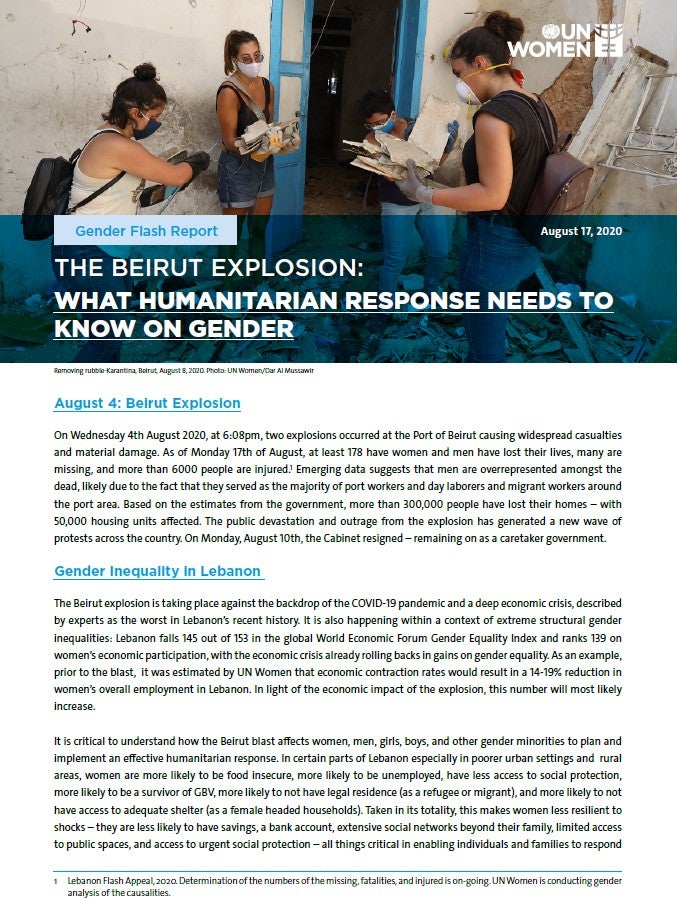
The Beirut Blast: What Humanitarian Response Needs to Know on Gender

The Beirut explosion is taking place against a backdrop of the onset of the COVID-19 pandemic and a deep economic crisis, described by experts as the worst in Lebanon’s recent history, and it is also happening within a context of extreme structural gender inequalities. Lebanon falls 145 out of 153 in the global World Economic Forum Gender Equality Index and ranks 139 on women’s economic participation, and the economic crisis had already begun to generate roll backs in gains on gender equality[1]. As an example, prior to the blast, it was estimated by UN Women that economic contraction rates would result in a 14-19% reduction in women’s overall employment in Lebanon[2]. In light of the economic impact of the explosion, this number will most likely increase.
It is critical to understand how the Beirut blast affects women, men, girls, boys, and other gender minorities to plan and implement an effective humanitarian response. In certain parts of Lebanon especially in poorer urban settings and rural areas, women are more likely to be food insecure, more likely to be unemployed, have less access to social protection, more likely to be a survivor of GBV, more likely to not have legal residence (as a refugee or migrant), and more likely to not have access to adequate shelter (as a female headed households). Taken in its totality, this makes women less resilient to shocks – they are less likely to have savings, a bank account, extensive social network beyond their family, limited access to public spaces, and access to urgent social protection – all things critical in enabling individuals and families to respond to disasters such as the Beirut blast. The gendered vulnerabilities of persons hit within the affected areas from Ras Beirut to Bouchriyeh, outside the capital are no exception.
This initial gender flash report outlines immediate gendered issues observed, highlighting why gender must remain at the forefront of Beirut’s humanitarian response. UN Women will continue to provide gender analysis throughout the response – paired with direct services, with a joint rapid multisectoral gender assessment forthcoming.